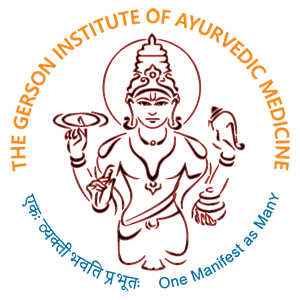Ayurveda is a rational approach to total wholeness which insight-fully utilizes the everyday daily routines of our lives for creating and maintaining health. The classical texts of Ayurveda, some of which have survived to the present day, are encyclopedic in their detail and date back 3000 years, though the oral tradition is shrouded in the midst of an even more distant time. In these texts, insights are given regarding what a human being truly is, what defines health, how illness manifests, and how it can be reversed and prevented. The approach of ayurvedic medicine is strikingly more life and health-oriented than disease and treatment-oriented. It offers humanity a holistic and total view of life and delineates the place of the human race within the entire cosmos.
Read MoreAs COVID-19 is proving to the world, tiny viruses are powerful biological agents, capable of rapidly effecting massive damage and fatality. And yet, they’re so simple: a virus is merely comprised of pieces of genetic material—either RNA or DNA—wrapped in a protein envelope, which is known as a “capsid.” Yet this tiny organism carries with it a mortality rate (death rate) or about 10% for people over 70 years of age and 22% for those over 80.
Read MoreWithin the last twenty years evidence has begun to accumulate which supports the specific health benefits of a vegetarian diet. For example in the late 1990’s, researchers found that the isothiocyanates in cruciferous vegetables (broccoli, cauliflower) protect against and possibly treat prostate and other cancers. The blood glucose-lowering effect of raw onions has been known for some time and is generally attributed to the presence of several sulfur-containing sulfoxides.
Read MoreWell, it’s the start of another new year and to celebrate this I’d like to riff a bit about the upcoming conjunction of Pluto and Saturn in Capricorn. I’m by no means a professional astrologer, but know just enough to be dangerous, as they say. I decided to write this piece because this rare conjunction really has my attention, and maybe it should have yours too. For those not familiar, a conjunction is when orbiting planets occupy the same degree in an astrological sign—as they fly through space on their separate orbital paths.
Read MoreMy small Ayurvedic office pharmacy is stocked with jars, bottles, and bins filled with herbal medicines from home and abroad. We could compare these plant-based medicines to distinguished ambassadors from around the world gathered together to work for world peace and harmony. The world, in this analogy, consists of my patient population. Each and every jar tells a story.
Read MoreAyurveda places an enormous emphasis on the importance of caring for the mother before, during, and after pregnancy. 'It is the woman who procreates children and propagates the human species. Dharma (righteousness), artha (wealth), lakshmi (auspiciousness), and loka (the entire universe) are represented in every woman.' (CS, Cs 2/3) Ayurveda regards the woman and her ability to produce and care for children as the basis of family life which, in turn, is the very foundation of society. Therefore, only if the women of a society are safe, protected, and content can these qualities manifest in that society.
Read MoreAcute anxiety, borne of fear/desire, falls under the general heading of Unmada ("Insanity") in Ayurvedic medicine. Sushruta describes Unmada as "a derangement of bodily Doshas affecting the upcoursing nerves and thereby producing a distracted state of Manas (mind)."[3] The disease manifests in both physical and mental symptoms which can include:breathlessness, dizziness, faintness, fatigue, palpitations, chest pains, headache, paresthesias, tremors, insomnia, anorexia, nervousness, diarrhea, vomiting, frequent micturition, increased sweating, forgetfulness, amnesia, phobias, incoherent speech, unsteadiness, agitation of the eyes, extreme fickleness of the mind, and mental confusion.
Read MoreIt may not surprise you that very few individuals meet the criteria for a healthy lifestyle. In the US, only 3% of adults meet all four of the very basic health behaviors considered to be a healthy lifestyle: (1) being a nonsmoker, (2) having a healthy weight, (3) being moderately physically active, and (4) eating 5 or more fruits and vegetables a day.[
Read MoreThe concept of the human body as a microcosm of the Universe is one of the most fundamental concepts of Ayurveda. This concept is known as loka-purusha sāmya siddhanta (loka-universe; purusha-human being; samya-sameness; siddhanta-teaching). Ayurveda views the entire creation, including the human body, to be constituted from five fundamental elements (pañca mahabhutas). The uniquely balanced configuration of these five elements in each unique individual creates normalcy or health and deviations from this normalcy in any direction causes disease. Thus the knowledge and restoration of normalcy of these five fundamental elements is the cornerstone of treatment in Ayurveda.
Read MoreAyurveda defines health not only in terms of balanced physiology of the physical body, but also as a state of harmony and contentment in every aspect of life. Thus, not only is it a medical approach to health, but Ayurveda can also be the foundation for the spiritual evolution of humankind.
Read MoreAs we are about to enter 2019, I thought I’d welcome you with a short message. According to Jyotish, the system of Vedic astrology, 2018 was a difficult year—all about surrender and healing the past so we can be more of who we truly are. According to my interpretation of Jyotish, 2019 will clearly bring expansion, opportunity, and self-awareness
Read More